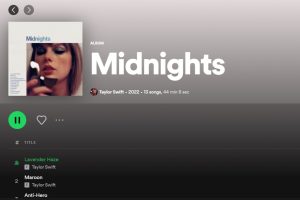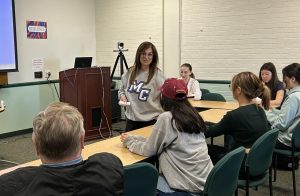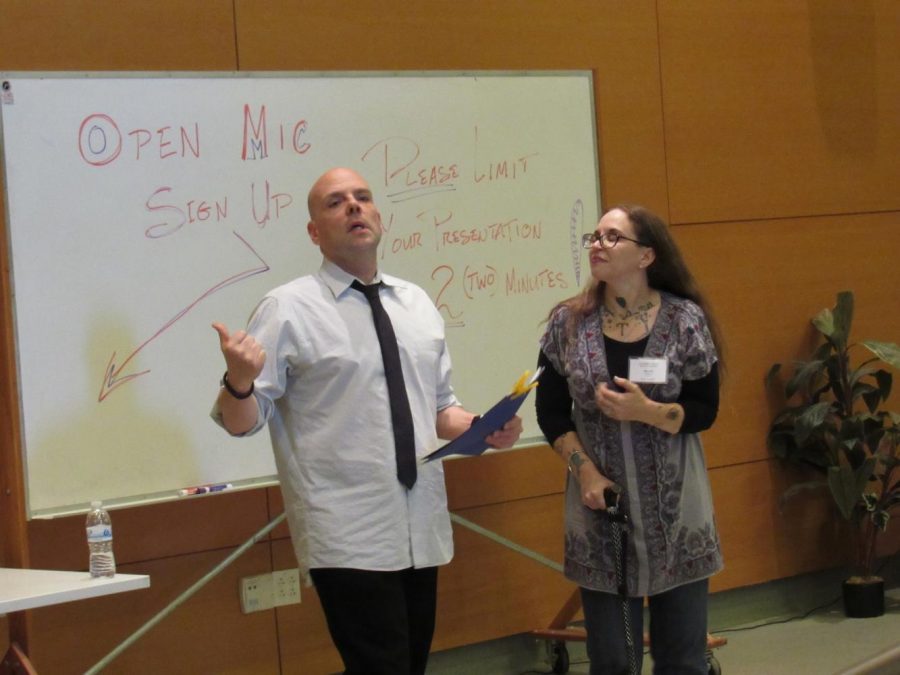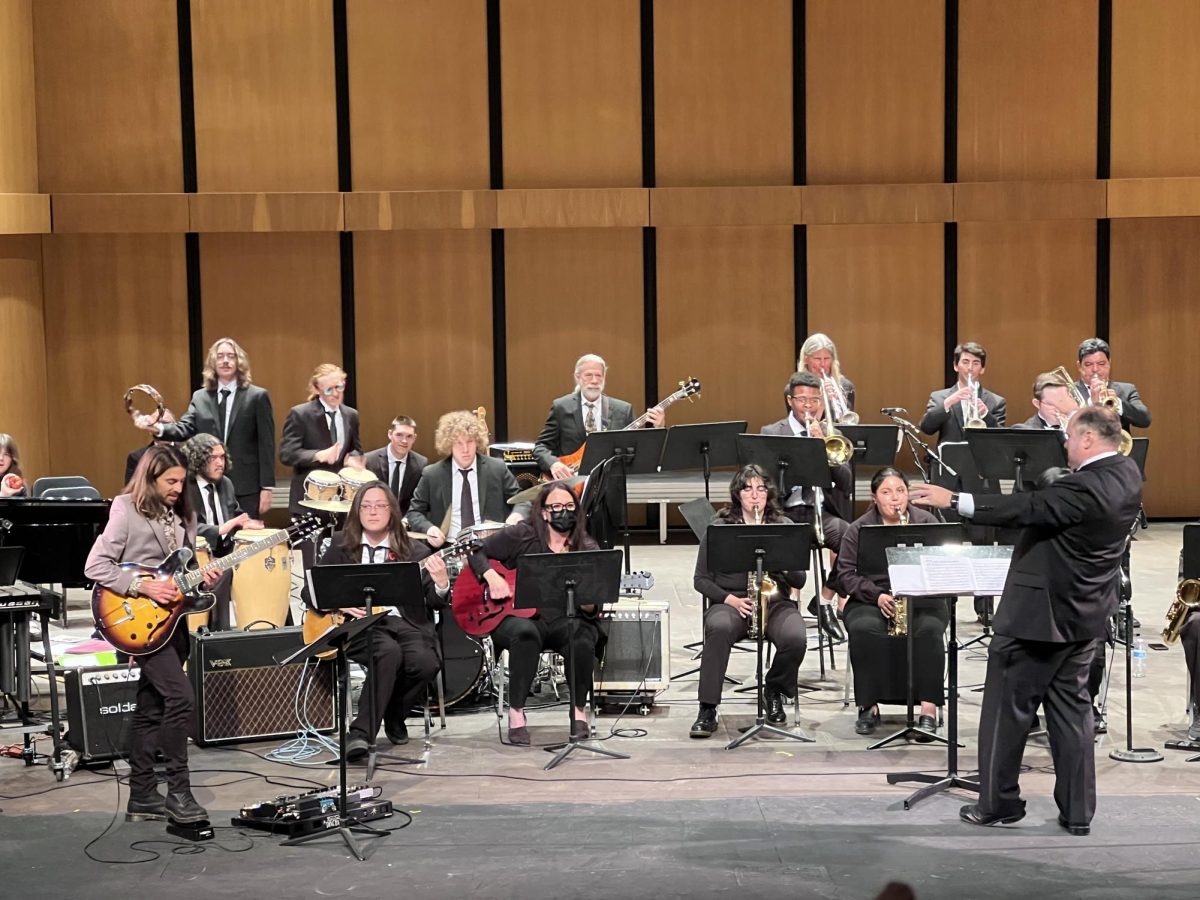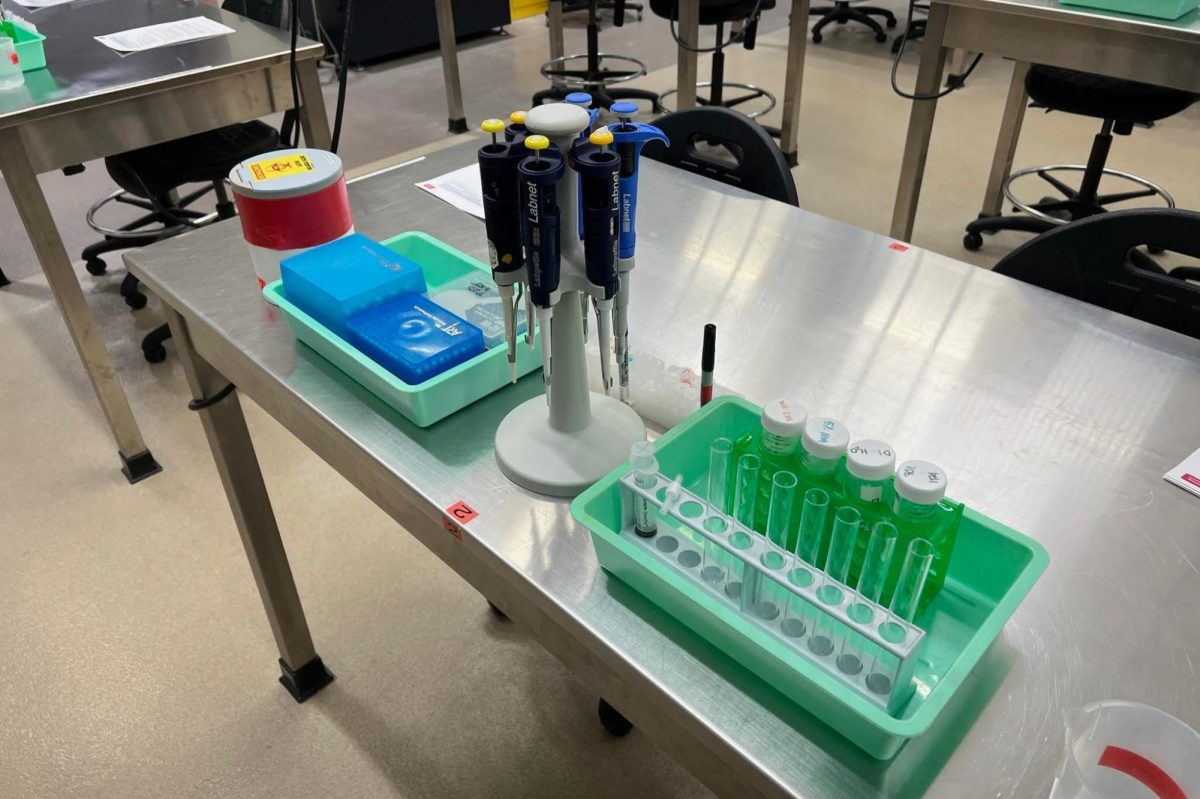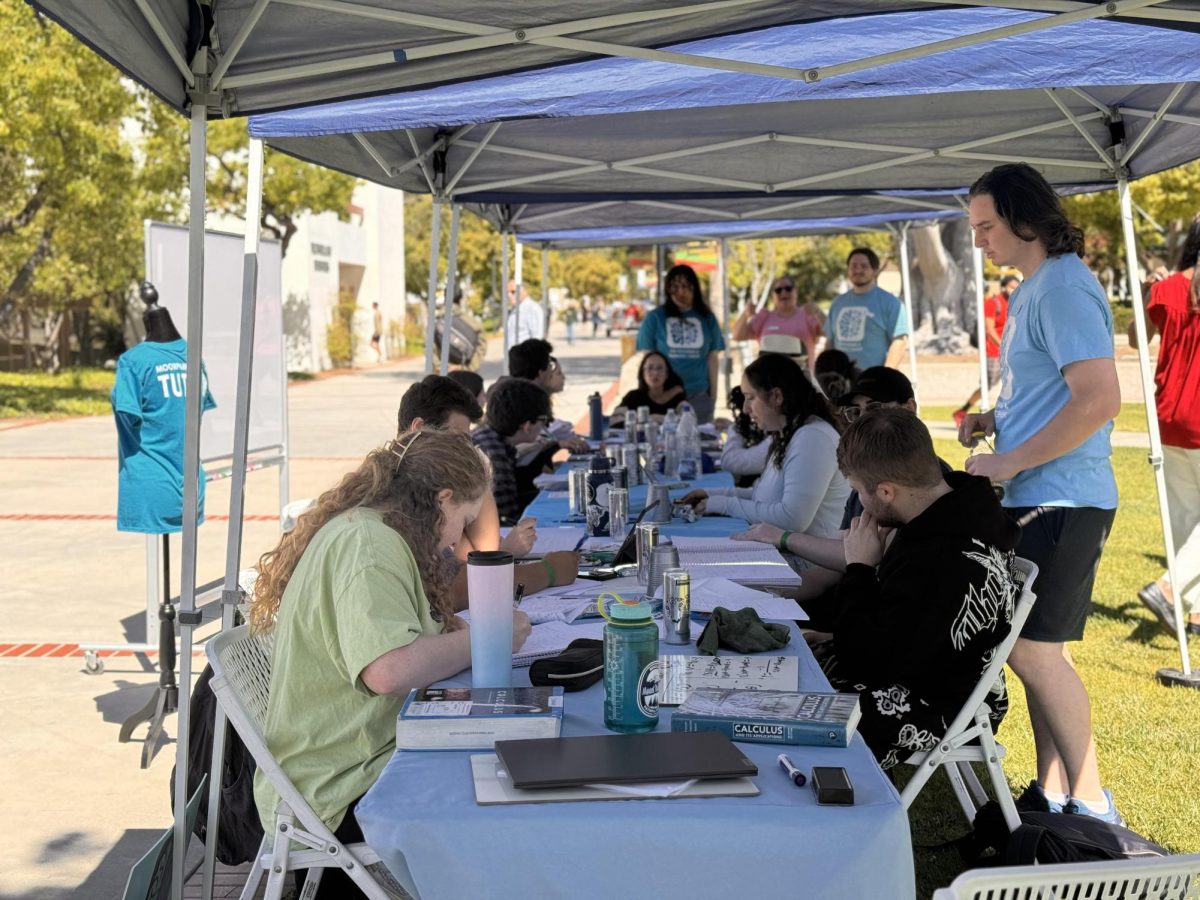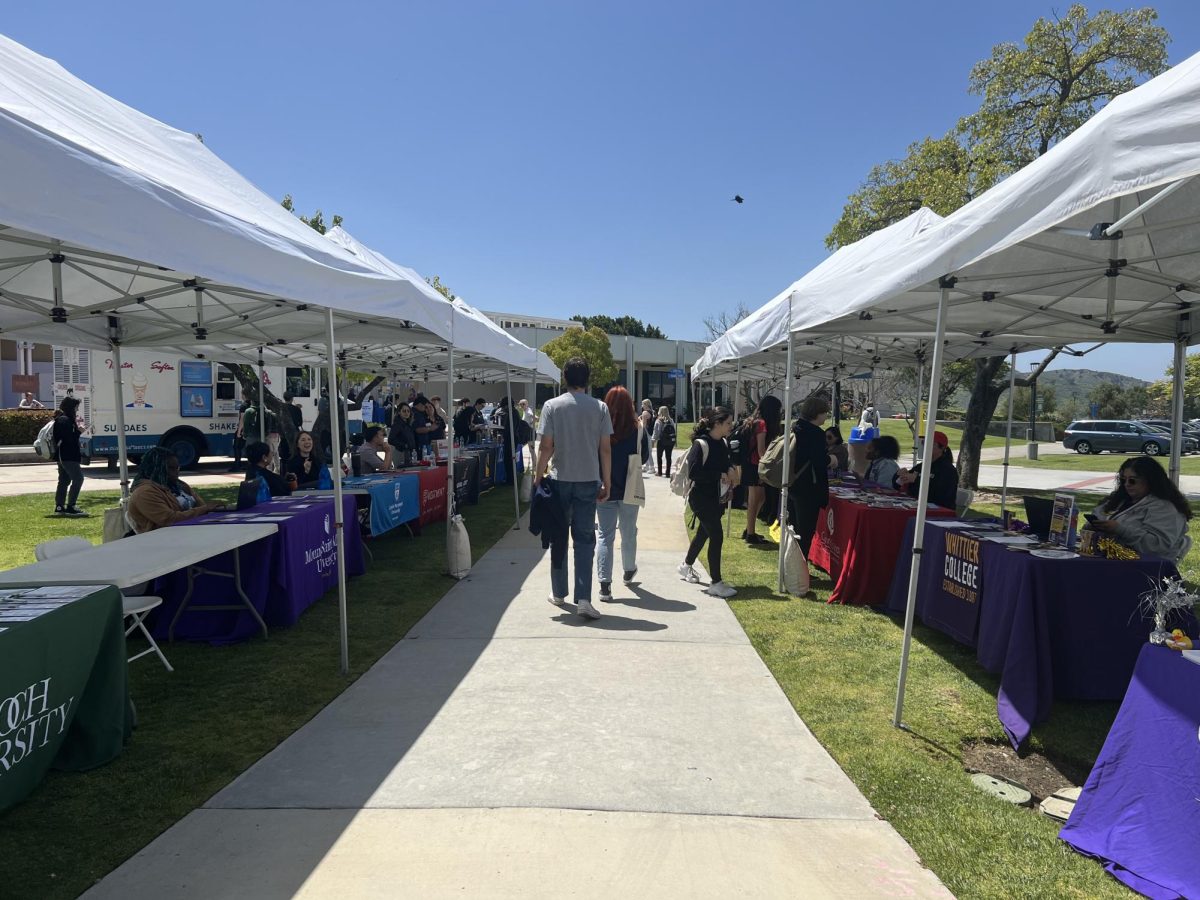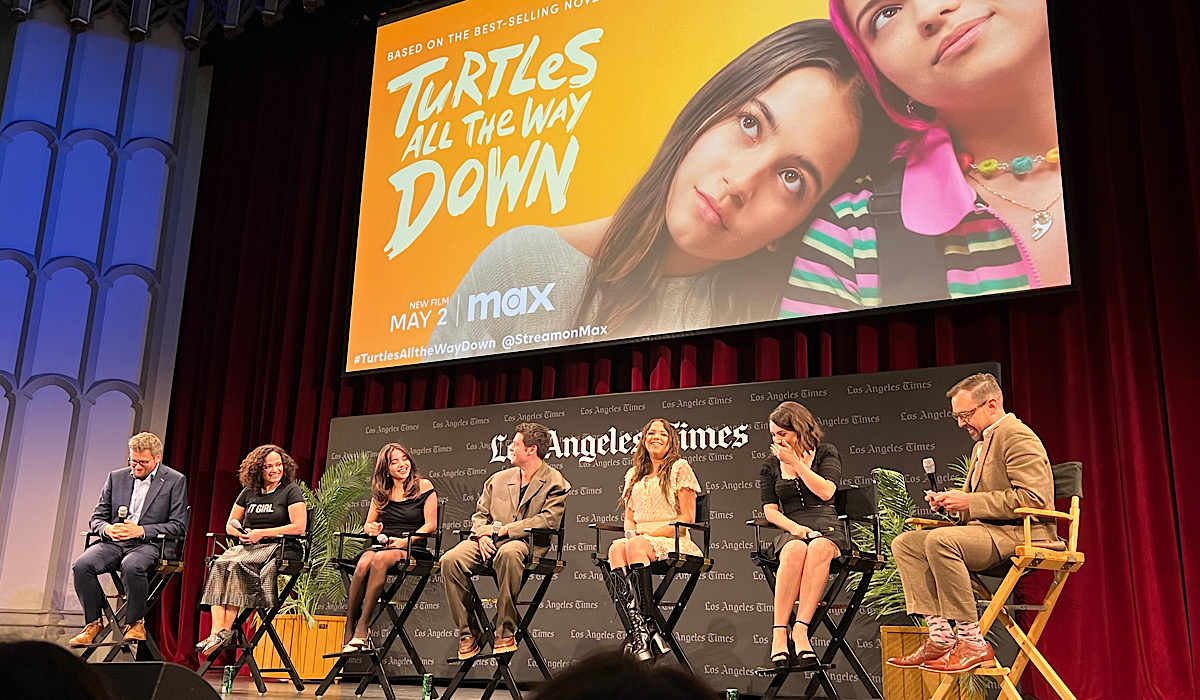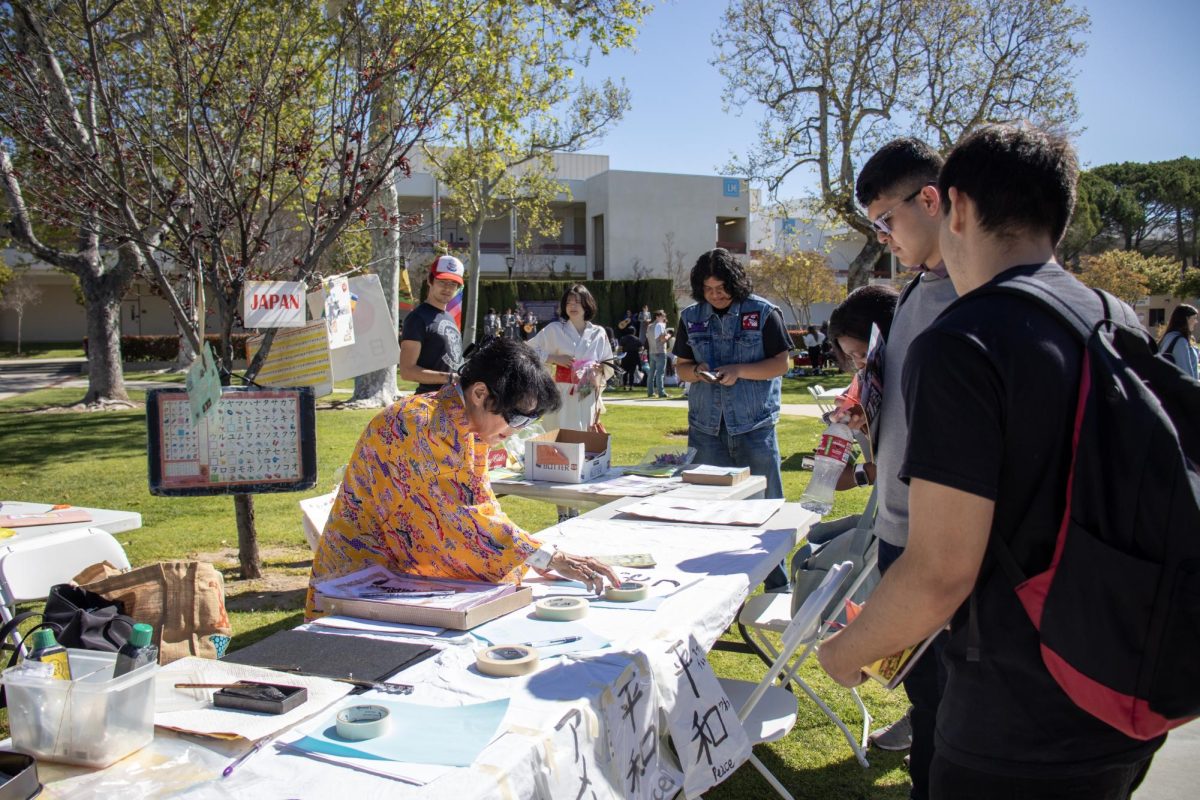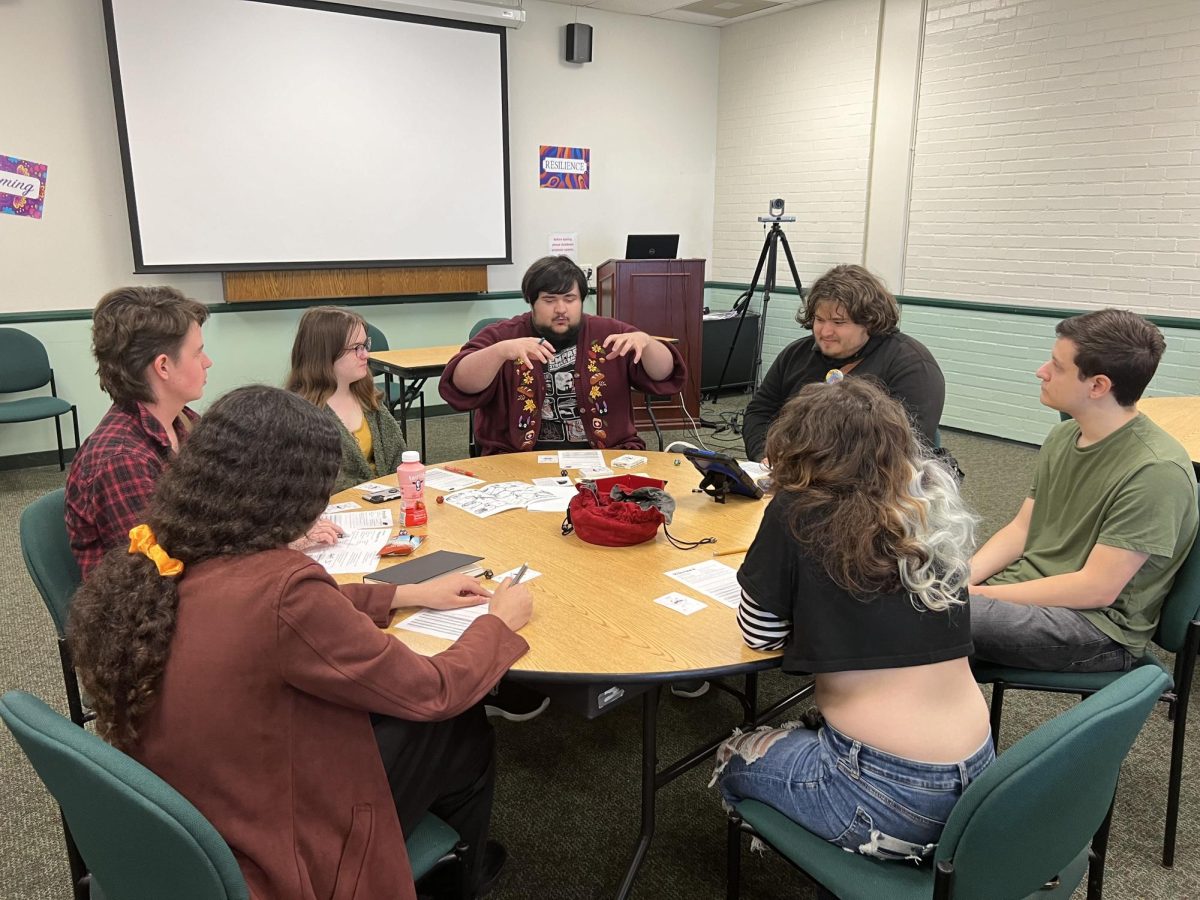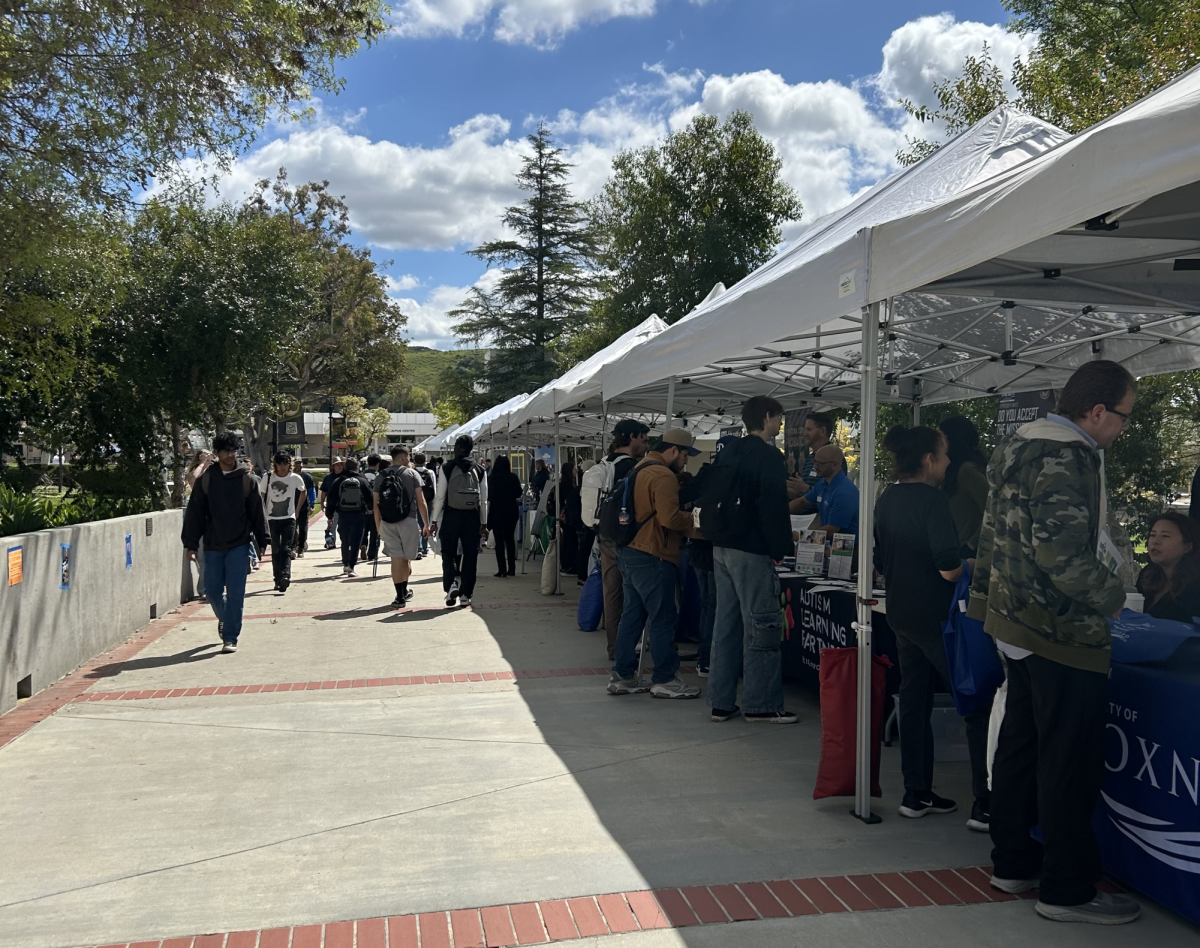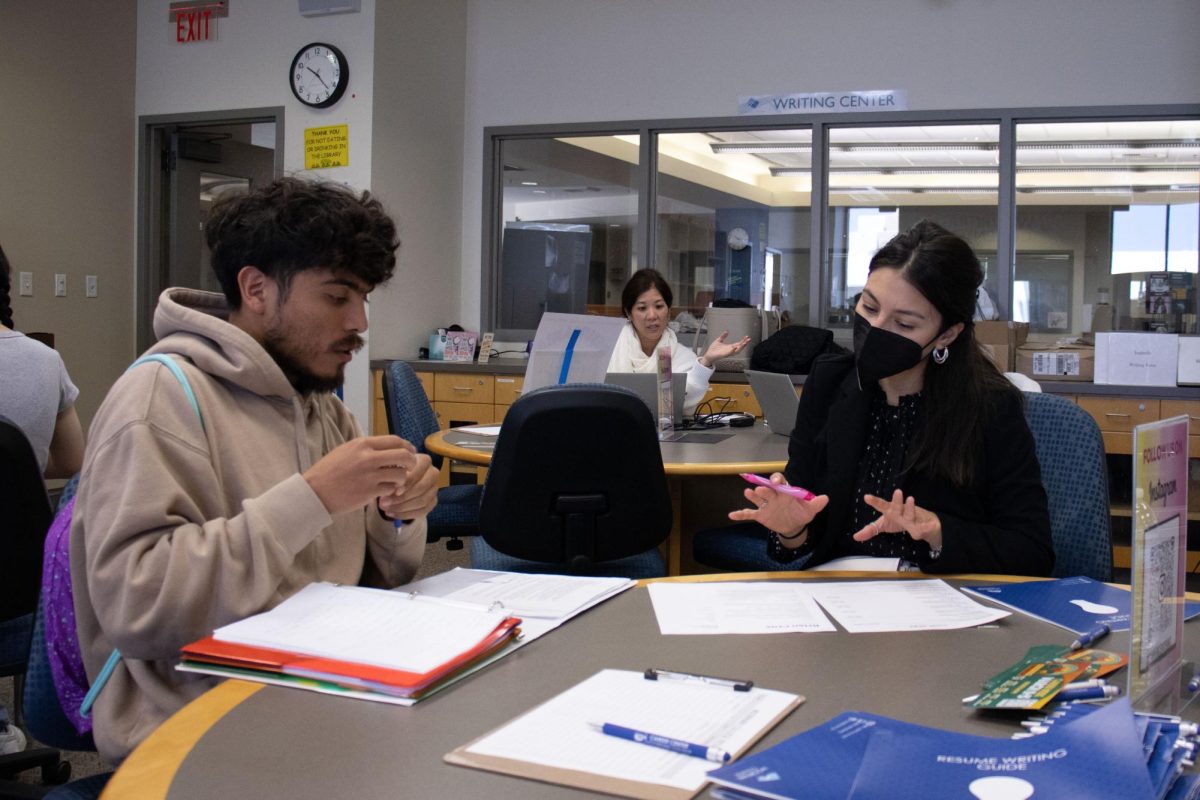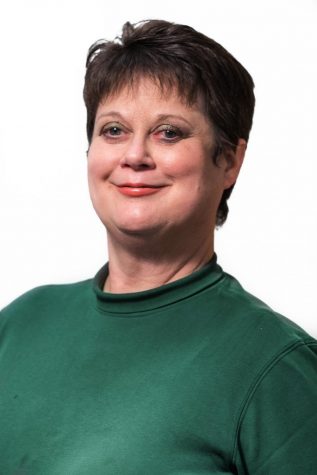Writers and students of different levels and all ages gathered to share and learn the craft of writing fiction and poetry taught by a variety of instructor writers.
After a light breakfast, the first-ever Writer’s Festival was held at Moorpark College on Friday, April 21, an all-day event held in EATM Lecture Hall 208. They were welcomed by College President Luis Sanchez and Poet Laureate Phil Taggart.
Taggart read a poem by Adrianne Marcus called “The Origins of Language”. English Professor Sandra Hunter added her welcome and made announcements. Folks then broke into separate groups based on their area of interest for fiction and poetry.
Author David Rocklin taught a workshop on fiction. He explained that he writes about writing in memory form with an opinion that he calls forming when writing fiction. Students were then broken into groups and were given a writing prompt.
He gave them about ten minutes to work on a story based on that prompt. After that he encouraged everyone in their group to share what they’d written.
Attendee Eric Boys of Ventura read from his thick notebook about getting past spiders and spider webs in the box before reaching the items.
“I came knowing I was going to get something out of this workshop,” said Boys.
Rocklin then said he wanted to make the authors think about conflict in their writing.
“Why would there be conflict?” he asked. “How did that conflict come about? How do you make your story richer? Deepen the conflict.”
Instructors of creative writing will state that every story has a story line running through it but you have to give the characters some kind of conflict otherwise the story just lies flat. Writers also need to make things difficult for their characters to give them a challenge. Understand first what the character wants because everyone wants something.
“Everyone is gifted in a special way,” said Rocklin. “You are all different from me.”
Rocklin is the author of a book called The Luminist set in Colonial India, at a time of growing friction between the ruling British and the restless Indian populace. A Victorian woman and her young Tamil Indian servant defy convention, class, and heartbreak to investigate what is gained – and lost – by holding life still.
“It is ingeniously wonderful,” said Thousand Oaks resident Lisa Lyons. “I gleaned so much.”
Author Jean Heglund continued in fiction with conflict and plot.
“It can be confusing coming up with a road map,” she said. “Where do you take your story?”
Look at the conflict and how that works in stories. Identify and help it grow. How do other people make it through life with their messes? We care about them and that they have a life. But how do they get through the conflicts?
“You want energy of the first draft to flow into your final draft,” she said.
Attendee and instructor Mark Sarvas, of Santa Monica, said he was impressed with the Festival.
“I love the energy and enthusiasm of everyone,” he said. “It’s thoughtfully organized and wish I had gone to something like this when I was starting out.”
Lynne Thompson led the first session of poetry and during the second session, shared her revision of poetry.
When Thompson was asked if she had ever read her work aloud, she explained her creative procedure.
“I don’t consider any poem finished until I read it out loud but never in front of a mirror,” said Thompson. “The best words should go in the best order.”
She advised that it should all tie together. Is the rhythm working?
“Also look at the shape of the poem on the page,” said Thompson. “Let the poem take shape but you want it to take shape on its own. Get out of the way to let it grow.”
Thompson then read one of her poems out loud, titled “Eulogy of a Red Dress”. She said that when she first read it out loud to her 16-year-old nephew, he told her it had to be “sexed up” so she rewrote it.
The conference ended with an open mic poetry reading. Many people read their poems extemporaneously and with much energy and enthusiasm to constant, wild applause from the audience.
Sandra Hunter, organizer and adjunct faculty of the English Department said she felt students and beginning writers have little opportunity to engage in something so valuable and creative.
“It was also a way for them to engage with the community, have a support of the community. We are able to offer this at a good price,” said Hunter. “These kinds of conferences can run anywhere up to $2,000, but we had support from President Sanchez and the school.”





